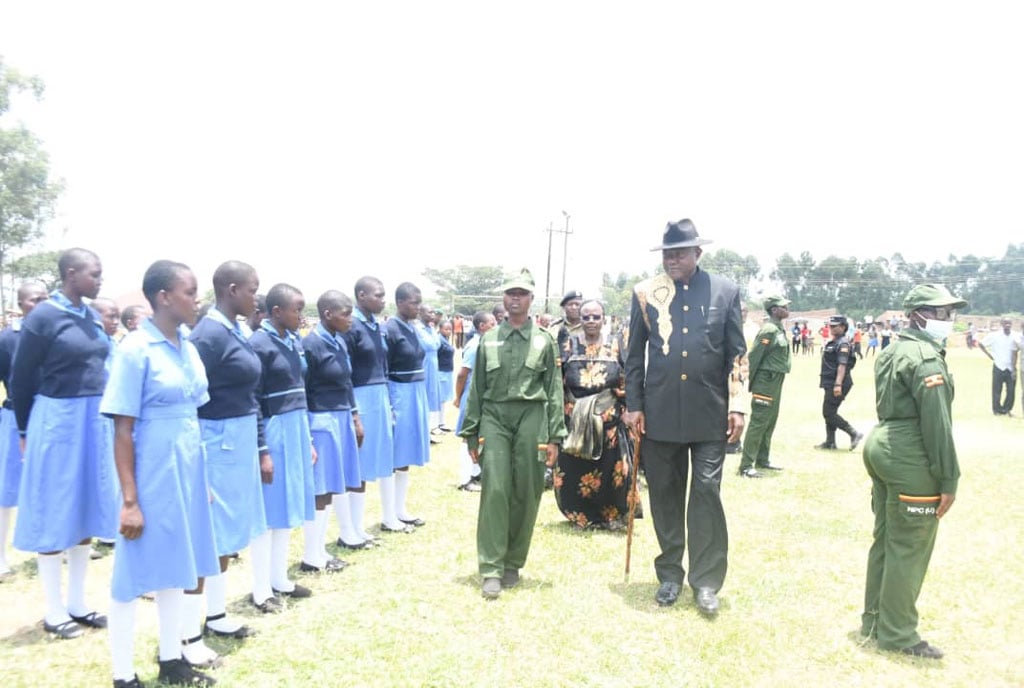
Author: Moses Khisa. PHOTO/FILE
I want to stay with last week’s subject of the cultural leader of the Bamasaba (Bagisu), referred to as the Umukuka. The above question isn’t just rhetorical, it’s very much practical and historical, as I will argue below.
In the course of the week, I received a good deal of vitriol, mostly posted on social media platforms. When people are unable to mount compelling arguments or articulate convincing viewpoints, the easy recourse is ad hominems and cheap barbs.
One longish text, rather incoherent and overly repetitive, at once underwhelming and quite exhausting to read, was signed off with, ‘Uwelukoosi Umukuuka Jude Mike Mudoma’. Uwelukoosi means ‘honourable’ in Gishu, arguably more appropriate than the dubious garb of ‘His Royal Highness’.
Bugisu is the land of my ancestors, so I have a specially vested interested in its sociocultural landscape, perhaps much less so the politics. At any rate, this is a national newspaper and this column has to speak to issues of broader national significance and social relevance beyond ethnocentric concerns of my ancestral roots.
The subject of kingship, especially artificially fabricated kingdoms and kings/chiefs in places of the country where they never previously existed, has become a pervasive phenomenon largely in the last two decades of President Museveni’s rule. It is emblematic of the poverty of the politics of our times.
As I argued last week, what I characterised as ‘kingdomisation, just like ‘districtisation’, is a handy opportunistic way for a few elites to curve out avenues for accessing spoils of the system and to get a cut from the state house dining table. These and other political machinations aid dressing up in titles that in reality are actually of little if no consequence at all.
If we take the specific example of the Umukuku, and the organisational umbrella under which he is housed, the Inzu Ya Masaaba, it is difficult to see the value that is added to either the deepening of Gishu culture or the advancement of socioeconomic development.
If you read up on the history of Bugisu, from precolonial times through the colonial era and post-independence years, you learn of the myriad foreign incursions and influences aimed at undoing or at a minimum rolling back Gishu culture, especially the famed male circumcision; yet they for the most part failed. This is well documented in an excellently written book by Dr Jimmy Lassiter, Circumcision and Coffee in Uganda.
The Bagisu have fought and preserved their cultural heritage and maintained a set of unique customs and ways of life for hundreds of years without an overarching hierarchy of leadership or a centralised structure of authority.
To institute a kingly figure and an institutional structure that have no robust cultural rootedness, lacking historical origin and without a compelling social base is not just against Gishu history and heritage, it is unlikely to make any difference in the broader scheme of cultural preservation and socioeconomic transformation.
Quite to the contrary, as I argued last week, the Inzu Ya Masaaba, through which the Umukuka is chosen and where he is housed, is based on a fictitious idea of 26 clans in Bugisu, something that wildly negates the actual clan system underpinning Gishu ethnic composition.
What is more, the election (or rather selection) process itself is riddled with controversies and contradictions, ultimately resulting in disputed outcomes and a bizarre situation of competing claims as to the rightful holder of the position and office.
In the main then, rather than serve as a unifying force and to rally Bagisu in pursuit of collective wellbeing, cultural renaissance and socioeconomic transformation, the Inzyu Ya Masaaba and Umukuka project have sowed divisions and wrought bitter battles likely to continue playing out in the future.
The superficiality of the project makes it ripe for denunciation and a target for spirited opposition by those who either see glaring defects in the design and implementation or those who altogether see it as entirely alien, thus unwelcome.
There is a good case to be made about promoting cultural tourism to grow Bugisu’s economy. And the push for making the best out of Bugisu gold, that is the special Arabic coffee variety, is vital and very much worthwhile.
Yet, neither cultural tourism nor the coffee project require a monarchy to thrive. The latter has always been the mainstay of Bugisu’s economy, the primary source of income for my father from which I was able to attend school. The institutional structure of cooperative societies did pretty well in aggregating farmer’s and producers’ interests only to be dismantled at the behest of the neoliberal agenda of the Museveni era.
On the other hand, cultural tourism can thrive with a team of competent professionals and the guidance of a council of elders as trustees of our cultural heritage.
In fact, unlike the wrongly applied notion of Umukuku, which as I argued last week is quite meaningless if the word is interpreted literally, a council of elders from our actual clans can give us a more realistic, reasonable and respectable representation of Gish culture.




